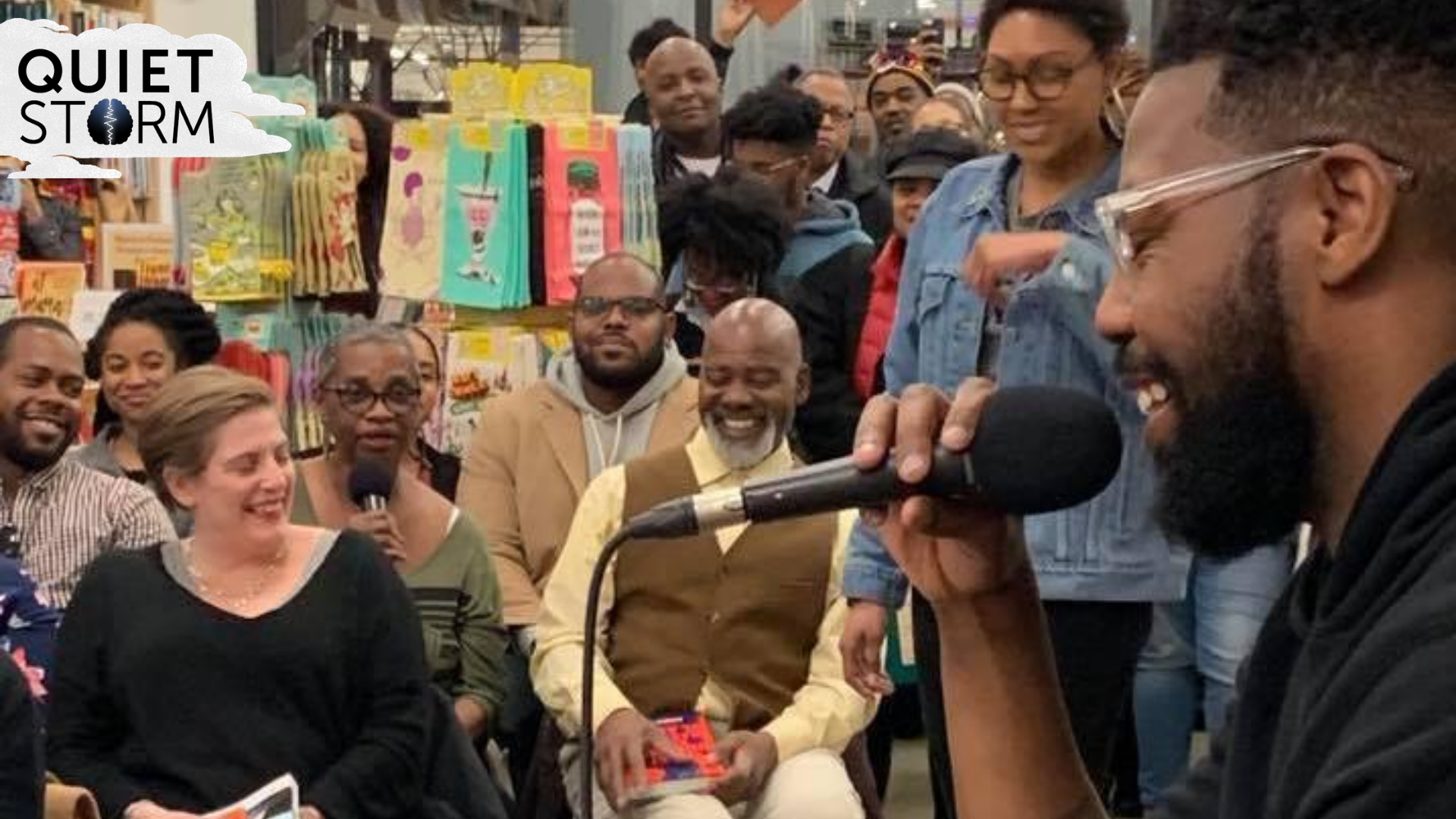The second biggest lie that I allow people who’ve read my book, and who’ve heard me speak about my book, to believe is that I’m brave. “How did you find the courage,” they ask, during Q&As at independent bookstores, and through emails and (now) Zoom talks, “to be so forthcoming and vulnerable about your neuroses and self-consciousnesses?” I have a well-curated collection of responses to this question.
Something like: “It gave the book a necessary relatability and connectivity. My experience as a 40-year-old, college basketball-playing, Black Pittsburgher from the hood is unique to me. Self-consciousness is universal. Anyone can relate.”
Suggested Reading
Or something like: “You don’t get past the fear. Of people discovering these things about you. Of people judging you and the people you love. Of people critiquing your work. Of whether it was worth it to bleed yourself open like that. But the work demands you work through it.”
Maybe even something surly and spicy like: “I feel like you’re only asking me this because I’m a cis-gender, hetero, Black male, and there’s an expectation that we don’t feel these things too. Your implication is racist.” (This answer is funny. You’ll see why it’s funny in a bit.)
Each answer does the trick of both challenging the idea of bravery while also allowing the assertion that I’m brave to go unchallenged. I never say “Yes. You’re right. I’m brave as fuck for this.” Cause I don’t have to say that to say that.
What I don’t say—what I’ve never said—is that this “brave” is dependent on a series of pre-settled conditions. Validations, for my work and for my person. Popularity. And money. Mostly money, actually. When circling through the process of determining how “brave’ to be on the page, I’m remembering the house and the car I’ve been able to buy because of my promise to the gatekeepers who gave me more money than I’ve ever seen before, to be vulnerable.
I’m thinking of the mortgage I’m able to pay. I’m thinking about my extended family, and the grocery orders and tuition payments I’m able to make for them. I’m thinking of steak when eating out instead of salad. Maybe steak and salad. Maybe just salad, but because I just want salad, not because I can’t afford steak. I’m thinking of buying them sneakers at Nordstrom instead of picking them up, inspecting them, fantasizing about rocking them, and placing them back on the display before scurrying out the store. What I don’t say—what I’ve never said—is that I am not brave.
I’m just a capitalist.
“Brave” would have been for me to be as vulnerable—in person and on the page—when I was 29 and single and broke. I was just as riddled with anxiety then. Just as aware of my self-consciousnesses. Just as cognizant of how I’d perform extroversion because I believed being an introvert was unbecoming. But these feelings were flattened by a belief I had then—and, embarrassingly, still possess some remnants of now: Anxiety and neurosis are for girls, gays, wimps, and white people.
It’s just not manly for cis-gender, heterosexual, Black men to admit to these things, and intact manliness is paramount as a motherfucker. I believed that if I allowed myself those vulnerabilities then, it would have had extreme social ramifications, including a drastic decrease in the number of Black women potentially romantically interested in me. That fear was—is—powerful enough to generate a performance.
I thought about the conditional “brave” earlier this week while reading another article on why American men—and this is white men, Black men, all men—are less likely to wear masks, and finding this:
“The notion is masculinity is a status that you constantly have to prove,” Peter Glick, a Lawrence University professor and senior scientist at the Neuroleadership Institute, told me. Glick specializes in overcoming biases and stereotyping. “Any sort of stumble is perceived [as you losing your masculinity]. So if you do have a stumble, then you have to reestablish it. And if you perceive a mask as ‘Oh, I’m scared of this little virus’ — that’s weakness.”
The term for this phenomenon is called “precarious manhood,” coined by Joseph A. Vandello and Jennifer K. Bosson, researchers from the University of South Florida. In their research, they found that past studies show men experience anxiety when it comes to their manhood and masculinity, or masculine gender identity. Vandello and Bossun posit that this is because masculinity, or what society thinks is “manly,” is something that’s hard to achieve and easily lost. And when masculinity is slighted, men compensate by acting out in risky ways.
“[M]en experience more anxiety over their gender status than women do, particularly when gender status is uncertain or challenged,” they wrote in their 2012 research paper. “This can motivate a variety of risky and maladaptive behaviors, as well as the avoidance of behaviors that might otherwise prove adaptive and beneficial.”
Maybe there’s a word better than “irony” to use here, but I can’t think of one, so I’ll just say that the irony of the self-fulfilling prophesy of precarious manhood smacks me in the fucking face. I ain’t feel right admitting to anxiety then, because “manhood” demands I don’t possess it, which creates more of it not to admit to.
But today, in 2020, I’m surrounded by validations of my manhood. A wife. Children. A house. Cars. Friends. Fans. Steak and sneaker money. Professional success. A full beard. I’m brave now, too. So fucking brave. I can’t believe how brave I am. Brave. Brave. Brave. Brave. Brave.
Straight From 
Sign up for our free daily newsletter.


